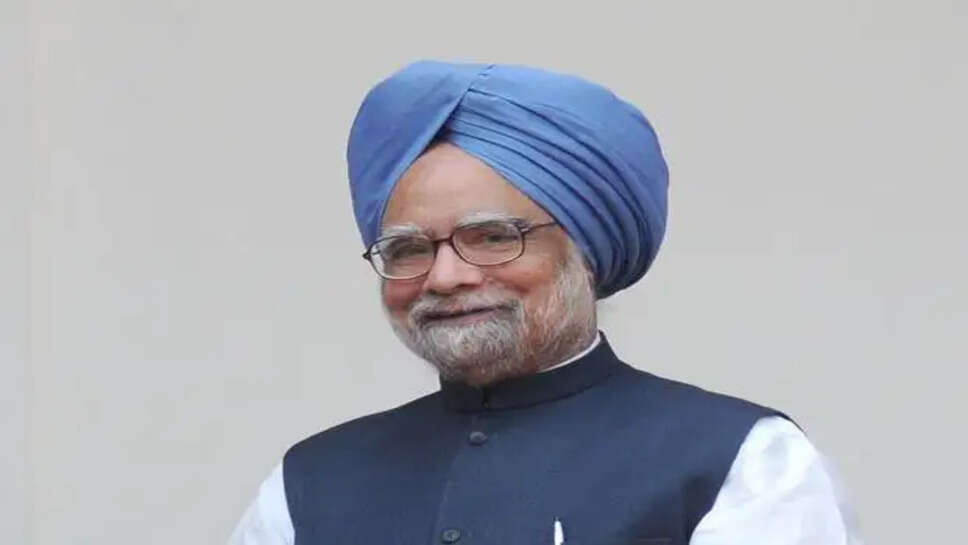A Look at Dr Manmohan Singh Speeches in Parliament

Dr. Manmohan Singh, India’s 13th Prime Minister, is often celebrated as an economist par excellence and a statesman with a calm demeanor. While his tenure (2004-2014) was marked by transformative economic reforms and significant political challenges, Singh’s speeches in Parliament reflected his deep commitment to India’s democratic ethos and economic growth. Let’s revisit some of his most impactful parliamentary addresses, from his heartfelt apology over the 26/11 attacks to his sharp criticism of demonetisation.
1. Apology for the 26/11 Mumbai Attacks
The 26/11 Mumbai terror attacks in 2008 were one of India’s darkest hours. As Prime Minister, Manmohan Singh addressed Parliament with a sense of gravity and responsibility, expressing profound regret over the intelligence lapses that led to the tragedy.
In his speech, Singh stated: “We deeply regret our inability to prevent this heinous attack on our soil. Our government is committed to ensuring that such incidents do not recur. Strengthening our intelligence and security apparatus is our top priority.”
This speech was both an apology and a call to action. Singh’s words underscored the government’s accountability and its resolve to bolster national security. It led to significant changes in India’s counter-terrorism framework, including the establishment of the National Investigation Agency (NIA).
2. Defense of the Nuclear Deal with the United States (2008)
Another defining moment of Singh’s tenure was the Indo-US Civil Nuclear Agreement, which aimed to end India’s nuclear isolation and facilitate civilian nuclear energy cooperation. The deal faced intense criticism from opposition parties and even within his coalition.
In a spirited defense in Parliament, Singh said: “I have often said that history will judge us by the way we respond to this opportunity. This agreement is about India’s energy security and global standing. We cannot afford to let this moment slip away.”
Singh’s measured yet resolute argument not only ensured the deal’s passage but also showcased his ability to stand firm in the face of political challenges. The agreement is now regarded as a milestone in India’s foreign policy and energy strategy.
3. Economic Vision During the Global Financial Crisis (2008-2009)
The global financial crisis of 2008-2009 posed a severe challenge to India’s economy. In Parliament, Singh—a seasoned economist—articulated a clear plan to shield India from the crisis’s worst impacts.
“Our banking system is resilient, and our policies are designed to maintain stability. We will prioritize infrastructure spending and ensure credit flow to productive sectors to sustain growth,” he stated.
His leadership during this period helped India achieve one of the fastest recoveries among major economies, underscoring the importance of prudent fiscal management and timely policy interventions.
4. The Apology for the Anti-Sikh Riots (2005)
In 2005, Manmohan Singh delivered an emotional speech in Parliament, apologizing for the 1984 anti-Sikh riots. As the first Sikh Prime Minister of India, his words carried immense weight and significance.
“What took place in 1984 is a national shame. I have no hesitation in apologizing not only to the Sikh community but to the nation, as a whole. It is time to move forward with healing and reconciliation,” he said.
Singh’s heartfelt apology was a moment of reflection and healing, earning widespread respect for its sincerity and humility.
5. Critique of Demonetisation (2016)
After stepping down as Prime Minister, Singh returned to the limelight in 2016 with a blistering critique of the Narendra Modi government’s demonetisation policy. Speaking in the Rajya Sabha, Singh’s analysis was sharp and concise, grounded in his expertise as an economist.
“This decision is a monumental mismanagement. The GDP will decline by at least 2%, and it will disproportionately harm the informal sector and the poor,” he stated.
Singh’s speech resonated widely, as many of his predictions about economic disruption and hardship for marginalized communities were later borne out. His critique was a rare moment of fireworks from a leader known for his composed demeanor.
6. Advocacy for Inclusive Growth (2010)
In 2010, Singh’s speech on India’s economic trajectory highlighted the importance of inclusive growth. Addressing Parliament, he emphasized the need to bridge the gap between India’s affluent urban centers and its struggling rural heartlands.
“Growth alone is not enough. It must be inclusive, ensuring opportunities and resources for every Indian. This is not just an economic imperative but a moral obligation,” he declared.
This vision laid the foundation for policies aimed at rural development, education, and healthcare, reflecting his belief in equitable progress.
7. Condemnation of Corruption Allegations (2011)
During his second term, Singh faced intense scrutiny over corruption scandals, including the 2G spectrum and coal allocation cases. Addressing Parliament, Singh defended his government, stating:
“I have always believed in probity and transparency. These allegations are being investigated, and we will ensure accountability. Let us not lose sight of the larger goals of governance and development.”
While the scandals tarnished his government’s image, Singh’s speeches reflected his personal integrity and commitment to due process.
Dr. Manmohan Singh’s speeches in Parliament serve as a testament to his intellectual depth, humility, and unwavering dedication to India’s progress. Whether apologizing for national tragedies, defending transformative policies, or critiquing economic missteps, Singh’s words were always measured and impactful.
In an era where political discourse is often marked by theatrics and aggression, Singh’s statesmanlike approach offers a valuable lesson in leadership. His speeches continue to resonate, reminding us of the power of thoughtful dialogue and principled governance in shaping a nation’s destiny.
